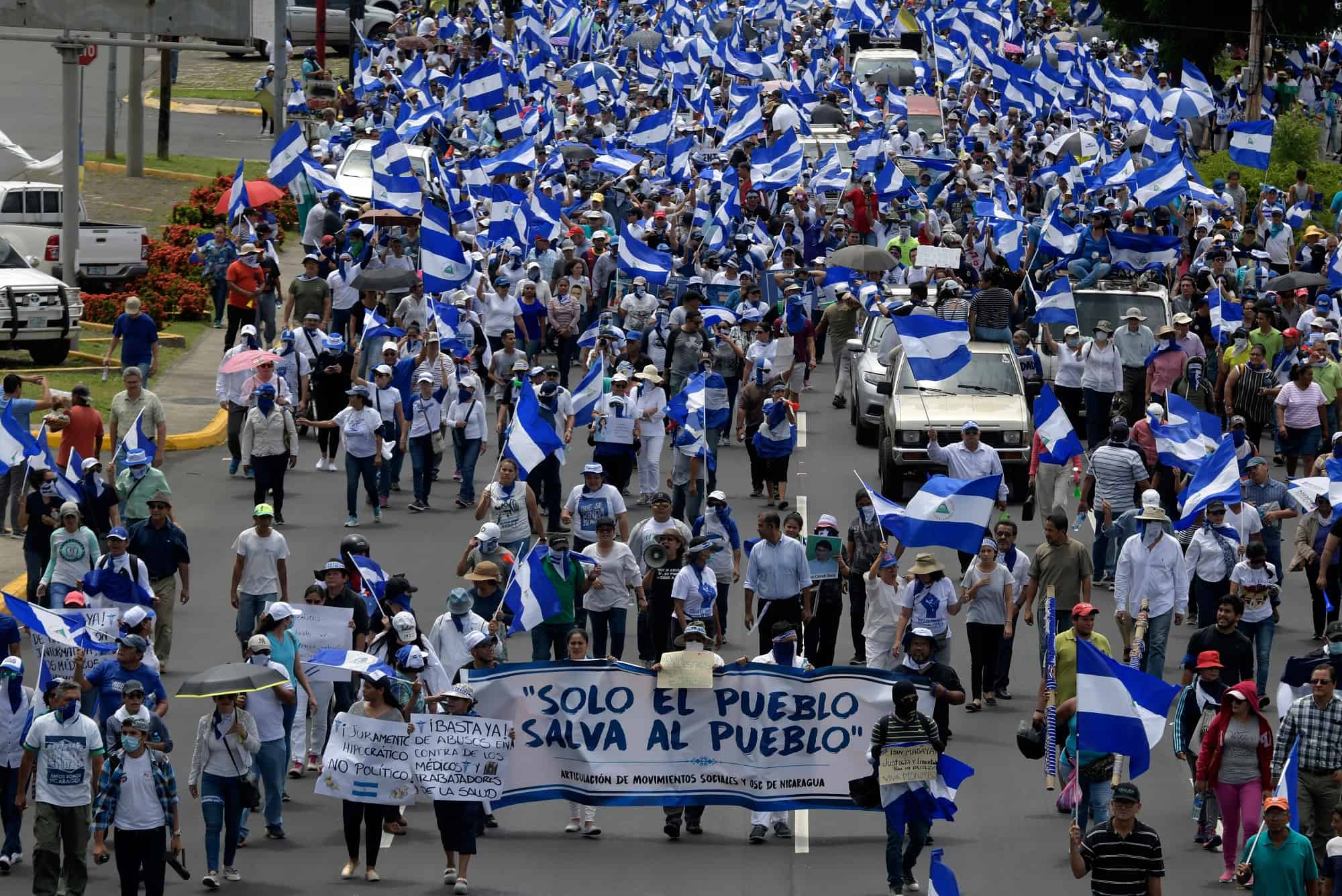Nicaraguans who fled the government of Daniel Ortega to request asylum in Costa Rica are requesting support from the UN High Commissioner for Refugees (UNHCR) for medical attention and employment.
The Nicaraguans gave UNHCR a letter with their requests, which include registration in the Costa Rican social security system — which would guarantee them medical care — and identity documents that allow them to obtain employment.
“UNHCR received $4.5 million to insure 5,000 or 6,000 asylum seekers in Costa Rica, but we do not have insurance,” the Nicaraguan nurse Ana Hernández claimed when she arrived at the headquarters of the UN agency in western San José.
“Some people have been insured, but we don’t know what criteria UNHCR uses to insure some and not others,” she added.
Hernández was known by the Nicaraguan authorities as “León’s vandalism nurse” after she treated the wounded during 2018 demonstrations against the Ortega government. She displays the nickname with pride.
In a response sent to AFP, the UNHCR office in San José said that the Covid-19 pandemic has aggravated “the conditions of vulnerability of asylum and refugee applicants” in the country, which led the organization to strengthen its assistance programs.
It indicated that under an agreement with the Costa Rican social security system, it was possible to provide medical insurance to 6,000 refugees and refugee applicants through the UNHCR financing.
Costa Rica has housed a population of around 400,000 Nicaraguans in recent decades, but the number has grown significantly after the persecution unleashed by the 2018 protests against Ortega, which led tens of thousands to seek refuge south of the border.
In late 2019, the UNCHR asked Costa Rica to expedite refugee requests from Nicaraguans, as well as to improve “measures to facilitate access to healthcare, work and education” for refugees.
In response, President Carlos Alvarado said Costa Rica required international support in order to properly attend to migrants.
“We need support from other countries to realize that shared responsibility,” the Costa Rican president said in December 2019.
Last year, Costa Rica created a special asylum category for Nicaraguans, among others, arguing it “has the obligation to not return these persons” to their country of origin based on risks to their “life, freedom and security.”
But a study last year by the Arias Foundation for Peace and Human Progress revealed that the vast majority of exiles are unemployed in Costa Rica.
Fernando Palacios, a human rights promoter from the Nicaraguan city of Jinotega, claimed that UNHCR has an obligation to issue documents to asylum seekers so that they can obtain employment.
“I have not been able to find work because UNHCR does not fulfill its obligation to give us documents that legalize our situation,” he complained.






